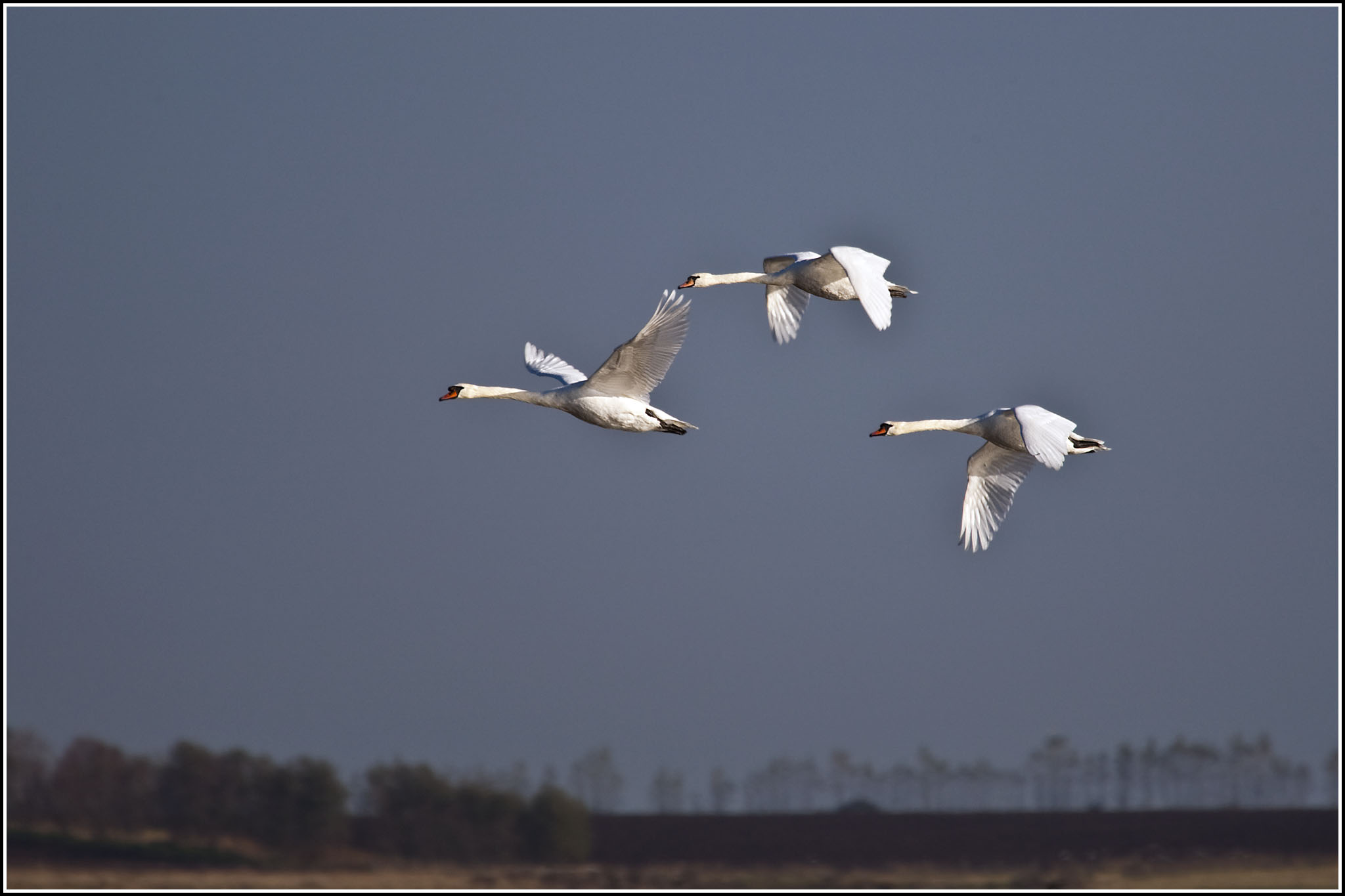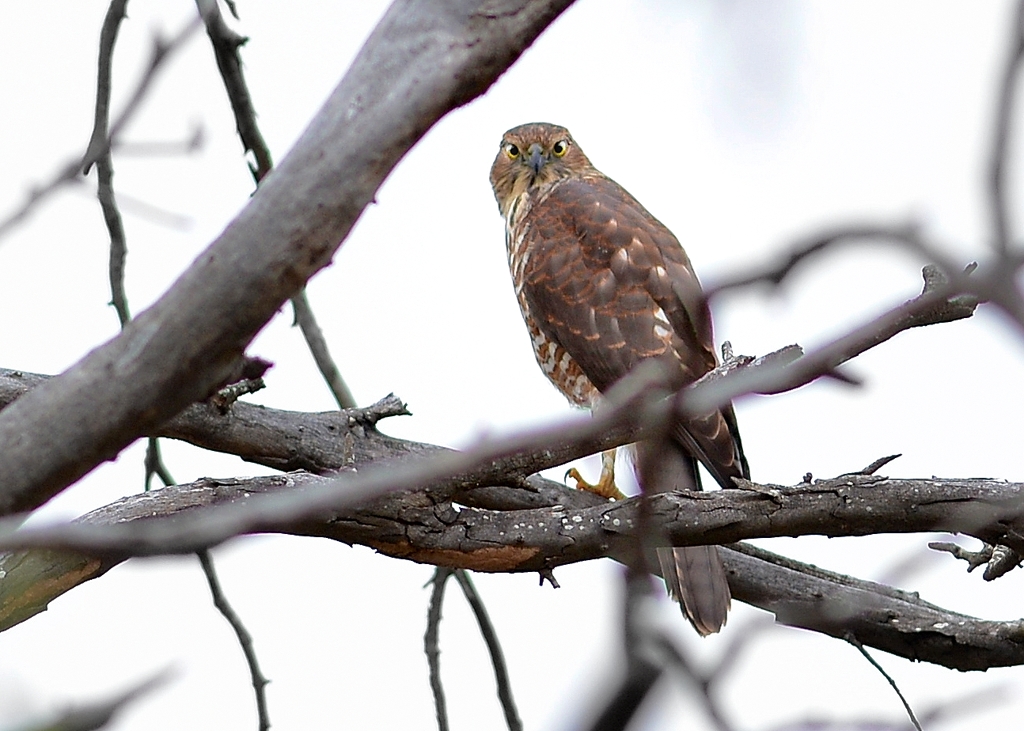Picture of the MCG packed out for the AFL Grand FInal
Which bird is going to fly at the MCG?
By Fiona Brown
Wondering who’s going to win the AFL grand final on the weekend? We were too, so we did what scientists do best and undertook some research to predict whether it will be the Swans or the Hawks taking home the cup on Saturday afternoon. This is what we found.
In favour of the swans is their size and weight. They are among the largest flying birds, with a wingspan of up to 3 metres and weighing in at up to a solid 15 kg. Compared with the hawk*, which has a wingspan of around 95 centimetres and is lucky to tip the scales at 355 grams, we’re guessing that the Swans will surely have the advantage when it comes to tackling.
Three swans in flight
Could the Swans’ size, weight, and speed in the air see them fly away with a win? Image by Smudge 9000
However, when it comes to speed, is all that extra weight going to slow the Swans down? If you’ve ever seen a swan walk, you’ll know the answer to this one – yes. Swans are clumsy walkers, moving at slow speeds on dry land thanks to their short legs and large bodies. In contrast, hawks have relatively long legs for birds and will sometimes be seen stalking prey by running along the ground. The Swans will need to be careful that the Hawks don’t literally run away with the game.
Image of hawk in tree, staring
Or will the Hawks’ speed on the ground and agility in the air see them dominate their prey? Image David Jenkins
Interestingly, in the air it’s not quite so clear cut as to who has the advantage – swans have the speed but hawks have better agility. The top speed of a Mute Swan** is claimed to be around 85 km/h, whereas when in pursuit of prey the hawk is reported to only reach speeds of up to 61 km/h. However, hawks are highly agile in flight, able to power through very small gaps in the canopy without colliding with branches. They use this ability to hunt, so are well-practised at using sudden, short bursts of speed to spring from a concealed perch, surprising unsuspecting prey. The take-home message? Watch out for some great marks!
Another key factor in predicting who will win any sporting match is the elusive team spirit. Who has the drive and aggression to get the job done? Which team will come together when it matters most? When it comes to aggression, both birds have pretty nasty reputations. Swans will aggressively protect their nests and young, using their size and powerful wings to ward off would-be predators (including humans). Hawks will also aggressively defend their territory, and they don’t get the title ‘bird of prey’ for nothing. They prey mainly upon other small to medium sized birds (including crows and magpies, which could explain Hawthorn’s defeat of Adelaide and Collingwood earlier in the season), but also eat mammals, amphibians, reptiles and occasionally insects. However, when it comes to commitment to the team, the Swans have it in the bag, with adult swans usually mating for life.
And lastly, what about the all-important weather forecast? With our friends at the Bureau of Meteorology predicting showers in Melbourne over the next couple of days and drizzle on Saturday morning, the G could be a bit damp under foot, which might be an advantage if those feet are webbed…!
Okay, so our ‘research’ might not be the most accurate method of predicting who’ll win the big game, but we definitely learnt something about our Australian feathered friends, and as Paul the Octopus clearly demonstrated, animals shouldn’t be dismissed when it comes to predicting results of football matches.
If you’d like to learn more about hawks, swans or any other Australian species for that matter, check out the Australia’s species page on the Atlas of Living Australia.
*Information about the hawks is based on our assumption that ‘hawk’ is short for ‘Brown Goshawk’, as this species of hawk has a brown head and body, yellow legs, and bright yellow eyes.
**The Swan’s mascot is based on the white species of swan found in Australia, which is the Mute Swan.





25th September 2014 at 7:21 pm
Too cute and very interesting! So glad I found your blog. 🙂
6th October 2014 at 9:00 pm
Only one comment! And you must work for CSIRO Marketing, right Kezza?